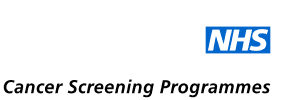Lessons to learn from the Commission for Health Improvement's investigation into the West of London Breast Screening Service

Lessons to learn from the Commission for Health Improvement's investigation into the West of London Breast Screening Service |
 |
|
|
Published 17th April, 2002 On Monday 15 April the Commission for Health Improvement (CHI) published an extensive and thorough investigation into the West of London Breast Screening Service (WoLBSS). The report concluded that "an unacceptable and avoidable" failure led to 123 women not being recalled for immediate further assessment following breast screening at the WoLBSS, which is part of Hammersmith Hospitals NHS Trust. CHI found that a number of different factors contributed to the failure:
Peter Homa, CHI chief executive, said: "A series of basic errors led to 11 women being harmed by the NHS. This is unacceptable. National guidance was neglected, despite attention being drawn to it and despite files having been mixed up in the past." Julietta Patnick, National Coordinator, comments: "CHI make a number of national recommendations which we are keen to take forward. We will review the guidelines on quality assurance team visits and the right results protocol and hope to do this within the next three months. We will also talk to the National QA Radiologists Group about developing a list of minimum details which must be filled in by radiologists when mammograms are reported." "It is important to stress that fail safe batches are an essential part of the breast screening programme. The NHS Breast Screening Programme, in collaboration with regional Quality Assurance Reference Centres, will address the issue of any failure by a breast screening unit in collaboration with the relevant health authority to run failsafe batches at least every three months." A copy of the full report is available from the CHI website: http://www.chi.nhs.uk/ |
Breast screening programme index What happens at a What are the risks of breast screening? Frequently Asked Questions (FAQs) DCIS (Ductal Carcinoma | ||||||||
| ||||||||||